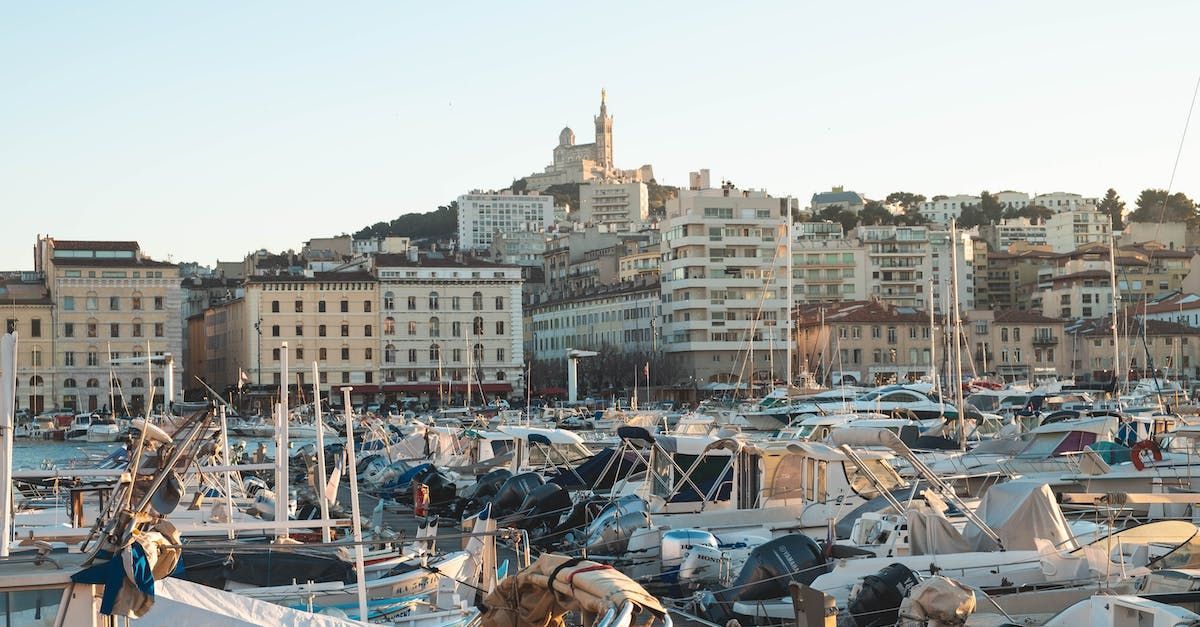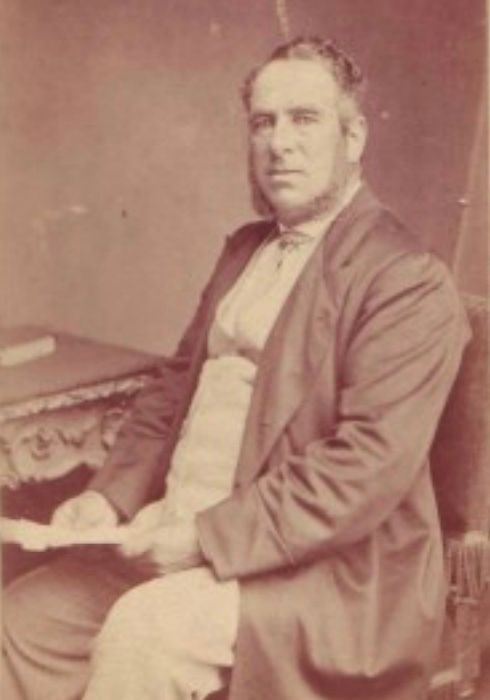Nancy Powell's French correspondence
These letters follow from Gerald, Blanche and Nancy Powell’s escape from France in June 1940. We are very much indepted to Chris Bettinson who has devoted much time translating them for us, the originals being written in French.
Translator’s foreword
These letters may represent the whole body of letters received, with Miss Powell still not returning to France to visit old friends even in 1946 ( to sort out her family property). If they do, the long silences of the Occupation are eloquent enough and suggest just how isolated and enclosed the occupied French were in the northern zone, run directly by the Germans, and the extremely difficult communication problems, even after the Invasion and Liberation of France, tell us how long it took to have any kind of normal life again. They are also eloquent testimony to the sheer difficulty in getting letters out and the length of time it may have taken. Many may have been sent by all sorts of indirect routes. Many may have got through: many may never have arrived. In more normal circumstances in the first half of 1945, some letters took a fairly long time to be delivered and they were still subject to censorship at that time. Individuals sometimes had their own reasons why they delayed in replying to Nancy Powell anyway.
-
Read the full comprehensive foreword
These letters may represent the whole body of letters received, with Miss Powell still not returning to France to visit old friends even in 1946 ( to sort out her family property). If they do, the long silences of the Occupation are eloquent enough and suggest just how
isolated and enclosed the occupied French were in the northern zone, run directly by the Germans, and the extremely difficult communication problems, even after the Invasion and Liberation of France, tell us how long it took to have any kind of normal life again.
They are also eloquent testimony to the sheer difficulty in getting letters out and the length of time it may have taken. Many may have been sent by all sorts of indirect routes. Many may have got through: many may never have arrived. In more normal circumstances in the first half of 1945, some letters took a fairly long time to be delivered and they were still subject to censorship at that time. Individuals sometimes had their own reasons why they delayed in replying to Nancy Powell anyway
Whether Nancy Powell went back to see dear, old friends, nurse, servants, close school friends, colleagues, friends or fellow members of the Red Cross again, these letters do not say. They are evidence of the desperate desire of survivors of Occupation to make contact again and to tell their own stories to an old friend and acquaintance. They also repeatedly express the desire for her to return to Nogent, as soon as possible, although one or two writers seem to think it understandable that she might not want to.
She was certainly delaying her return, ostensibly because of visa problems. There may have been other letters she wrote later on, covering such a return to Nogent-le-Rotrou and the subsequent years. Members of her family are certain that she did return, on more than one occasion, and that friends from Nogent did visit Basingstoke after the war.
The accompanying documents, especially the narrative provided of the escape from France, written in 1979 (when she was 73) are interesting. The narrative of their escape may well have been inspired by the death of Mme de Gaulle and the Telegraph obituary /article. This may have prompted Miss Powell to dig out her diaries and any other paperwork she still had and reconstruct that amazing escape. The narrative reminds us of the general panic of the great exodus of June 1940, when hundreds of thousands took to the roads and fled to areas south of the Loire, some going as far as the ‘deep’ SouthWest.
Naturally, the letters give us another picture of life in France after the July 1944 invasion and subsequent ‘liberation’ of the country. And, indeed, they highlight, as indicated above, the isolation people felt, from their English friend and members of their own families, even at a relatively late date and during the first quarter of 1945.
A third act of the drama, the eventual reunion is lacking as yet. There is evidence in the letters of the gradual, if incomplete, reconstitution of families, with prisoners returning, sometimes in good health, but sometimes on the verge of death. If more details of the return to normality could be reconstituted, then a third phase, that of joyous reunion, at least with some close friends that go back to Miss Powell’s childhood days, could be glimpsed.
The themes of the letters are predictable, but nonetheless interesting for that: concern for the fate of the Powell family after they made a successful, but fairly late, dash to return to Britain after the fall of France; mundane, entirely human, family matters – births, marriages, deaths, but especially illnesses, growing old etc; food supplies, especially during the black market phase after the invasion and liberation; experiences of the German occupiers (not all bad, actually) and the American (and Canadian) young men in the invasion army; increasingly in 1944-45, the loss of sons and husbands, stories of the concentration camps and personal witnesses of the cruelty of those referred to by the older generation still as the Boches. There are also some interesting local details of the early reprisals taking by the FFI (Resistance) and then by the authorities against collaborators, the process known in France as the ‘épuration’ or purification.
The letters are suggestive fragments of a common drama, but one enacted by real French and English families – the Powell family, quintessentially English, but with its French roots and experience, and a whole range of people from Nogent-le-Rotrou. Nancy Powell lies at the centre, of course, and her relationships with Odette, Yvonne and Janine, are fascinating, but it’s more Nancy as the link between families and the community in Nogent that is interesting and her role as an ambassadress for England / Britain. The strong link in the chain, it seems to me. The whole thing works as a living metaphor for Franco-British relations generally, but especially with regard to the combined struggle (Churchill + de`Gaulle) against the Germans, that was to end, quite quickly with both countries rejecting their war leaders.
The language of the letters is sometimes relatively educated, cultivated even, sometimes, it is less so and more at a level of simple short sentences and utterances lined up with commas joining them. It is sometimes difficult to decide when to create a natural break (as per a new sentence), or to what extent the implied logic behind the remarks should be brought out. It is a bit of a balancing act for the translator. But, he has not wanted to abandon completely the more simple grammar and syntax of the original, hoping that, in this way, distinctive voices with their own native accents, as it were, might be heard
Equally important is the depiction that some of the somewhat fragmentary and rudimentary comments, and the somewhat random order of them, provides of the speech of ordinary, semi-educated people, as well as the evidence it provides of their natural thought processes and, sometimes, of their emotional state.
Handwriting styles vary enormously, from traditional (copper-plate, italic and classic nineteenth-century styles) to more modern, slightly idiosyncratic. Sometimes, there are severe issues of illegibility, often the case with personal letters. The issue is compounded by the determination to make maximum use of the paper and squeeze as much on the pages as possible (common in times of paper shortages, of the need to keep the weight down, the desire to squeeze as much as possible on every page and typical war-time prudence). Where there were issues of readability, including some difficulties with abbreviations, the translator has glided over the problem and indicated this with (… …) linking the other pieces together. The same issue arises, quite a lot actually, with personal or place-names that are difficult to transcribe. Mostly, the translator has simply used first letters followed by … … to indicate this problem.
The translation of the mode of address and, indeed, the closing formula of the letters, has been done with some care, so that these reflect the nature of the relationship and the degree of closeness or intimacy. The more educated the writer, the more controlled and formulaic the closing comments are. But on the whole most writers seem to be either personalizing this section or, if their language seems less good, they simplify the terms anyway. There is also the effect on the mode of address (as well as the closing remarks) of the nature of the prior relationship with Nancy Powell and/or the sheer relief and excitement at making contact again.
The translator has reconstituted the date order of the letters (proposing one date change), tentatively suggested an historical frame and, sometimes, explained some of the context referred to in the letters or specific references, historical or otherwise, where it has been thought helpful to bring out the meaning of a particular letter. Chris Bettinson July 2009










